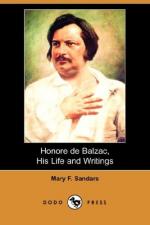|
This section contains 5,358 words (approx. 18 pages at 300 words per page) |

|
SOURCE: Shuh, Rachel. “Madness and Military History in Balzac's ‘Adieu.’” French Forum 26, no. 1 (winter 2001): 39-51.
In the following essay, Shuh argues that in his short story “Adieu,” Balzac comments on historical narrative and indeed competes with the genre in his fictional account, maintaining too that the madness in the novel represents historical trauma.
The distinctiveness of Honoré de Balzac's Comédie humaine has often been linked to its representation of contemporary society. For both Erich Auerbach and George Lukács, for instance, Balzac inaugurates a new style of realism by portraying the present. Auerbach maintains that Balzac is one of the founders of “modern realism” for having “seized upon the representation of contemporary life as his own particular task” (468). And Lukács writes that Balzac transcends the historical novel of Walter Scott by passing “from the portrayal of past history to the portrayal of the present as history...
|
This section contains 5,358 words (approx. 18 pages at 300 words per page) |

|


